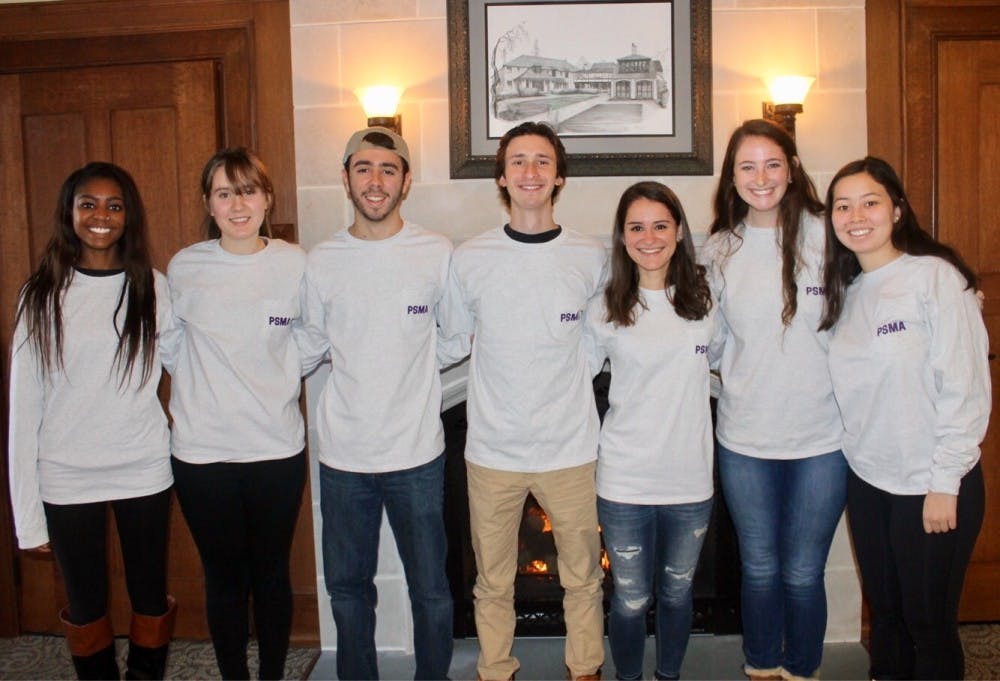A group of seven Richmond students came together last semester to found the Peer Sexual Misconduct Advisors (PSMAs) program composed of students trained as confidential peer advisors in Title IX policy, procedure and emotional support resources.
PSMAs are students from both Westhampton College and Richmond College who will connect students with the resources and information they need on the reporting process and procedures regarding sexual misconduct and Title IX investigations.
The PSMAs will also help report misconduct violations and accompany students to meetings as confidential support.
Richmond students Alexandra Abreu, WC ‘17, and Claire Comey, WC ‘19, started the PSMA program after the two met on last year’s student sexual misconduct advisory board. Comey got the idea from a similar program at Kenyon College in Ohio.
“We know that with the majority of people, if something does happen to them, they reach out to a friend versus an adult first,” Abreu said. “We thought it can’t hurt to have informed friends on campus who are trained.”
Comey and Abreu spent almost a year forming the program. They consulted with students from Kenyon College and met with administrators on campus to gain the knowledge they needed to bring the program to the university.
“We all have the same goal,” Comey said. “And that’s to make students feel safe and taken care of here.”
Each PSMA completed training on Richmond’s sexual misconduct policy, how to properly respond to reports of assault and trauma and how to provide educational guidance and help to students who seek it.
The Title IX Coordinator, Counseling and Psychological Services (CAPS), campus police, St. Mary’s Hospital, Safe Harbor, Spiders for Spiders, the student health center and the Virginia Anti-Violence Project all trained the PSMAs in the week before classes resumed for the spring semester.
To become a PSMA, each member had to be recommended by a faculty or staff member on campus and then had to go through an interview with the CAPS faculty advisor, along with Comey and Abreu.
Kristen Day, a licensed professional counselor at CAPS, is the faculty advisor for the PSMAs. Day helped create the training with Abreu and Comey and will help conduct biweekly meetings with the PSMAs.
“My hope is that it will provide more information for students and make the process more transparent so that students will maybe be more likely to utilize it again,” Day said.
The PSMAs can be contacted directly at any time through their email address, psma@richmond.edu, or they can be reached through the university deans, campus police, residential advisors, the area coordinators and the Greater Richmond Sexual Assault Hotline by requesting a meeting with a PSMA. The number for the hotline is now located on the back of all student IDs.
Abreu and Comey emphasized that students should not be afraid to approach the PSMAs. Each member will wear a button on their backpacks so students can identify the PSMAs and stop them to ask questions. PSMAs are confidential and are required to never inform each other or any other person of the names and information shared with them.
Abreu and Comey are not concerned about the amount of students who need their services. They want the PSMA program to be about making themselves available to any student who wants to go to them for help.
“I believe if we can make a difference in one or five students’ lives, that makes everything we did worth it,” Comey said.
(Editor's note: Claire Comey is a Collegian editor.)
Contact reporter Stephanie Hagan at stephanie.hagan@richmond.edu

